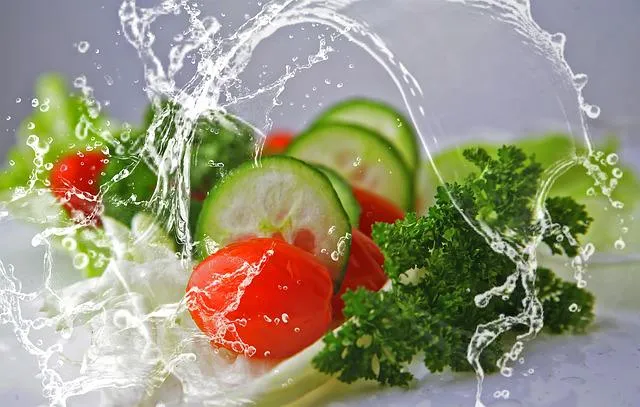
Imagen de Christine Sponchia en Pixabay
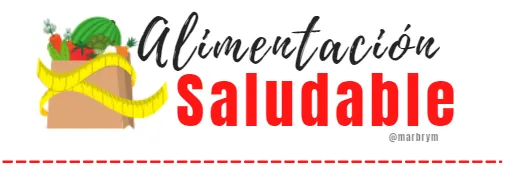
DeepL Translator (free version)
(English version below)
Hola amigos de #Hive y especialmente de esta noble comunidad de @ecotrain. La pregunta de esta semana es muy importante y también muy interesante. Es necesario que nos tomemos un tiempo para reflexionar en este punto porque la verdad es, que "somos lo que comemos" como he escuchado por allí, pero en especial porque nuestra salud presente y futura, dependerá en gran parte de ello.
Yo como alimentos de todos los grupos, sin embargo estoy convencida de que fuimos creados para ser vegetarianos. Creo que Dios nos hizo para vivir del producto de todo árbol que nace sobre la tierra. Sin embargo, por un cambio de circunstancias mundiales, los seres humanos comenzaron a incluir en su dieta la carne de animales.

Imagen de Engin Akyurt en Pixabay
En la actualidad hay personas que se eximen de consumir carne animal o alguno de los productos derivados de ellos como la leche o huevos, por cuestiones de conciencia o por estar en contra del maltrato animal, otras por considerar que hace daño para la salud, algunas por sus creencias religiosas y es probable que existan otras razones por las cuales las personas no comen carne.
Yo respeto y simpatizo con la dieta vegana y quizás algún día sea mi estilo de vida, pero las costumbres familiares y cultura nos acostumbra a cierto estilo de vida, lo cual incluye la dieta, con la cual estamos familiarizados y satisfechos muchas veces.
🌾 Mi posición en cuanto a la comida balanceada

Yo me considero una persona con mentalidad saludable. Normalmente he tratado de comer sano sin hacer extremos ni ser fanática, en especial después de tener mi propia familia. En mi casa materna siempre comimos muy bien, en casi todas las comidas había ensaladas, se consumía bastante fruta y jugos de ellas, no se consumían muchos embutidos ni enlatados, pero el queso y la leche eran parte de la dieta diaria. Así como también la carne de res, el pollo y el pescado.
Las salsas industriales como mayonesa, salsa de tomate o mostaza, se compraban de forma esporádica. Por cultura en mi país (Venezuela), así como en muchos otros, la principal fuente de proteína es de origen animal, carnes, huevos y leche. Así que una dieta que no incluya este tipo de productos no es muy popular. Sin embargo, debido a la fuerte situación económica que ha atravesado este país desde hace algunos años, especialmente unos pocos años atrás cuando la situación estuvo más ruda, muchas familias vieron cómo la proteína animal desapareció de sus casas.
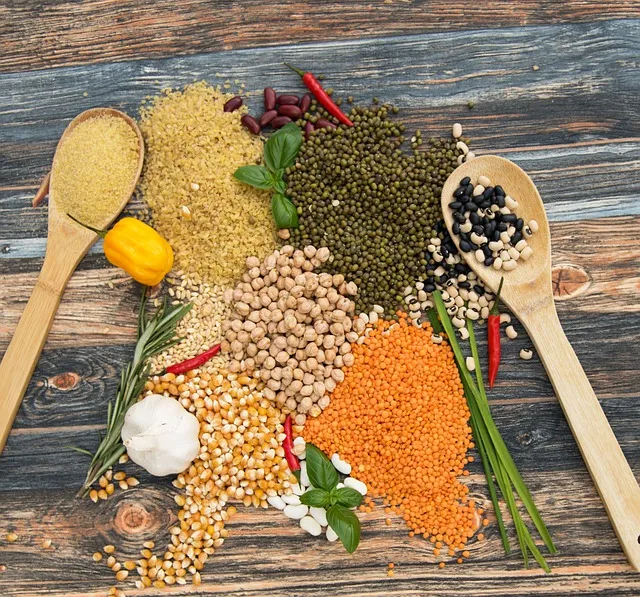
Imagen de yilmazfatih en Pixabay
Esta proteína fue sustituida por granos en especial la lenteja. En ocasiones algunas de estas familias más golpeadas podía incluir huevo y sardina. Entonces fue un cambio de dieta obligada. En ese entonces muchas personas bajaron mucho de peso porque también era muy difícil conseguir harinas tanto de maíz como de trigo, arroz y azúcar, incluso el pan llegó a ser muy escaso. Por eso a parte de la proteína vegetal, las verduras eran el complemento de la mayoría de sus comidas.
Recuerdo cuando en ese entonces hubo, me atrevería a decir que, la mayor época de mango de la historia, al menos de mi historia, y eso calmó el hambre y se convirtió en una fuente de energía para muchas familias. Es triste recordar esa época porque muchas familias pasaron mucha hambre. A la mala, experimentaron un cambio en su dieta diaria, sin embargo esto no les permitió ver las bondades de esta forma de comer.
🌾 La comida en casa

Luego de casada, las compras de comida eran un poco estresantes porque mi visión de la alimentación era algo diferente a la de mi esposo. Él es más carnívoro, le gustan los embutidos, las salsas y los condimentos, mientras que yo me inclino un poco más a lo saludable. En la actualidad yo me he relajado un poco así que nuestra dieta, en especial los últimos meses, ha incluido más productos no tan saludables de los acostumbrados.
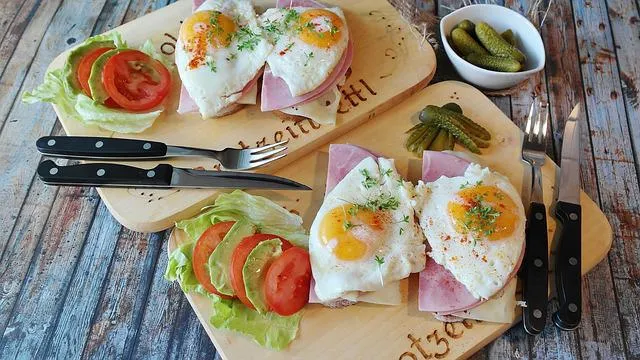
Imagen de RitaE en Pixabay
Pero estoy consciente e incluso mi esposo también lo está, de que esto debe cambiar. Muchas personas me criticaron durante los primeros años de mi hijo (en especial sus dos primeros). Sus comidas fueron sin sal, sin azúcar, sin químicos. Incluso no le daba gelatinas procesadas sino que se las preparaba yo misma para evitar los colorantes y los endulzantes. Su dieta también incluía bastantes verduras y frutas, aunque también carnes, y él fue alimentado casi sus dos primeros años con leche materna.
Se que lo que comemos incide en nuestra salud, siempre me preocupe por comer dentro de lo posible, lo más sano, pero cuando las cosas comenzaron a ponerse rudas, yo tuve que relajarme porque ya no había mucho de donde escoger y se comía lo que se podía comer, Así que eso llegó a ser suficiente. Claro, siempre tratando dentro de lo posible que la alimentación fuera lo más balanceada.
🌾 Como se debe comer

Hace unos pocos años atrás leí varios libros sobre diferentes tipos de alimentación. No porque me llamaran la atención los temas sino porque estuve trabajando editando algunos de esos libros. Así que me di cuenta que, el mundo de la alimentación es complejo y es un gran universo. Por ejemplo, leí sobre las dietas veganas, cetogénicas, detox, sobre las enzimas digestivas, sobre los diferentes tiempos en que cada comida es digerida, sobre la combinación de los alimentos, entre otras cosas.
Así que después de eso creo, que es muy difícil comer perfectamente bien. Hay alimentos que impiden la absorción de ciertos nutrientes, o alimentos que se digieren más rápido y otros menos cuya combinación no es recomendable. Los alimentos muy cocidos generan mayor producción de enzimas los cuales traen algunas consecuencias. Por eso hay que tratar de incluir alimentos crudos o no tan cocidos. En este último caso hay que estar pendientes porque también los alimentos crudos pueden generar otros problemas.
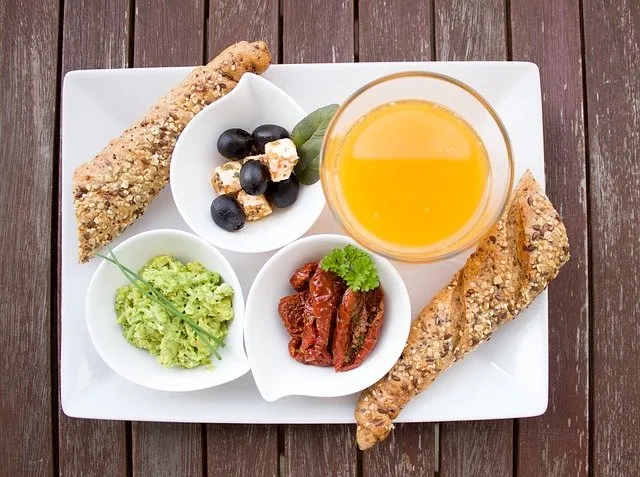
Imagen de Bernadette Wurzinger en Pixabay
Estoy de acuerdo que las harinas procesadas, en especial la de trigo, las carnes, en especial las rojas, la leche animal y el azúcar son dañinas para la salud. Si logramos eliminarlos de nuestra dieta nos ahorraríamos muchos problemas de salud en la actualidad y en especial en el futuro. Además, si comemos vegetales crudos, de hoja verde y frescos, así como del resto, de todos los colores, podremos beneficiarnos de todos sus nutrientes, antioxidantes, minerales y vitaminas y fortaleceremos nuestro sistema inmunológico.
Es cultural que comamos mucha arepa, hecha de harina de maíz, pero siempre me ha gustado reforzarla con zanahoria, calabacín o auyama rallada, pero últimamente le adiciono linaza molida y eso me ha ayudado con los síntomas de la menopausia, por tener hormonas vegetales. También, trato de incluir en nuestras comidas algún alimento crudo. Uso mucho cúrcuma para cocinar, también ajo, cebollas, orégano entre otros, que a parte de sabor tienen alto valor nutricional y como medicina natural.
Mi esposo e hijo no consumen mucha fruta entera, prefieren el jugo con azúcar y se que no es saludable. Así que tengo bastante trabajo que hacer por el bien de todos. Afortunadamente ellos comenzaron a interesarse por consumir jugos verdes en las noches y los estoy apoyando con eso.
Lo bueno es que a ellos dos les gustan los vegetales y los comemos en abundancia y siempre, pero hay que bajar la ingesta de otros productos menos saludables. Gracias por este tema que me ha ayudado a ver que no debo colgar las manos sino ponerme en acción para mejorar nuestros hábitos alimenticios.
ENGLISH VERSION

Imagen de Christine Sponchia en Pixabay
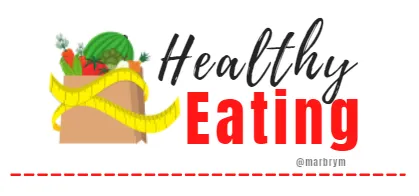
Hello friends of #Hive and especially of this noble community of @ecotrain. This week's question is very important and also very interesting. It is necessary that we take some time to reflect on this point because the truth is, "we are what we eat " as I have heard over there, but especially because our present and future health, will largely depend on it.
I eat foods from all food groups, however I am convinced that we were created to be vegetarians. I believe that God made us to live on the produce of every tree that grows on the earth. However, due to a change in world circumstances, humans began to include animal meat in their diet.

Imagen de Engin Akyurt en Pixabay
Nowadays, there are people who do not eat animal meat or any of the products derived from them, such as milk or eggs, for reasons of conscience or because they are against animal abuse, others because they consider that it is harmful to their health, some because of their religious beliefs and it is likely that there are other reasons why people do not eat meat.
I respect and sympathize with the vegan diet and maybe one day it will be my lifestyle, but family customs and culture accustoms us to a certain lifestyle, which includes diet, with which we are familiar and often satisfied.
🌾 My position on balanced eating

I consider myself a health-minded person. I have usually tried to eat healthy without going to extremes or being fanatical, especially after having my own family. In my mother's house we always ate very well, in almost every meal there were salads, we consumed a lot of fruit and fruit juices, we didn't eat a lot of sausages or canned food, but cheese and milk were part of the daily diet. As well as beef, chicken and fish.
Industrial sauces such as mayonnaise, ketchup or mustard were bought sporadically. By culture in my country (Venezuela), as well as in many others, the main source of protein is of animal origin, meats, eggs and milk. So a diet that does not include these types of products is not very popular. However, due to the strong economic situation that this country has been going through for some years now, especially a few years ago when the situation was tougher, many families saw how animal protein disappeared from their homes.

Imagen de yilmazfatih en Pixabay
This protein was replaced by grains, especially lentils. At times some of these hardest hit families could include eggs and sardines. So it was a forced dietary change. At that time many people lost a lot of weight because it was also very difficult to get both corn and wheat flour, rice and sugar, even bread became very scarce. So apart from vegetable protein, vegetables were the complement to most of their meals.
I remember when back then there was, dare I say it, the greatest mango season in history, at least in my history, and that calmed hunger and became a source of energy for many families. It's sad to remember that time because many families went very hungry. In a bad way, they experienced a change in their daily diet, but this did not allow them to see the benefits of this way of eating.
🌾 Food at home

After I got married, grocery shopping was a bit stressful because my view of food was somewhat different from my husband's. He is more carnivorous. He is more carnivorous, likes sausages, sauces and condiments, while I lean a little more towards healthy. Nowadays I've relaxed a bit so our diet, especially the last few months, has included more not-so-healthy products than usual.

Imagen de RitaE en Pixabay
But I am aware, and even my husband is aware, that this needs to change. Many people criticized me during my son's early years (especially his first two). His meals were salt-free, sugar-free, chemical-free. I even did not give him processed jellies but prepared them myself to avoid dyes and sweeteners. His diet also included plenty of vegetables and fruits, but also meats, and he was breastfed for most of his first two years.
I know that what we eat affects our health, so I was always concerned about eating as healthy as possible, but when things started to get rough, I had to relax because there wasn't much to choose from and we ate what we could eat, so that became enough. Of course, always trying as much as possible to eat as balanced as possible.
🌾 How to eat

A few years ago I read several books about different types of food. Not because the topics caught my attention but because I was working editing some of those books. So I realized that, the world of food is complex and is a big universe. For example, I read about vegan, ketogenic, detox diets, about digestive enzymes, about the different times in which each food is digested, about the combination of foods, among other things.
So after that I think, it's very difficult to eat perfectly well. There are foods that impede the absorption of certain nutrients, or foods that are digested faster and others less so whose combination is not recommended. Overcooked foods generate a higher production of enzymes which have some consequences. That is why we must try to include raw or not so cooked foods. In the latter case, it is important to be aware that raw foods can also generate other problems.

Imagen de Bernadette Wurzinger en Pixabay
I agree that processed flours, especially wheat flour, meat, especially red meat, animal milk and sugar are harmful to our health. If we manage to eliminate them from our diet we would save ourselves a lot of health problems now and especially in the future. In addition, if we eat raw, green leafy and fresh vegetables, as well as the rest, of all colors, we can benefit from all their nutrients, antioxidants, minerals and vitamins and strengthen our immune system.
It is cultural that we eat a lot of arepa, made of corn flour, but I have always liked to reinforce it with carrot, zucchini or grated pumpkin, but lately I add ground flaxseed and that has helped me with the symptoms of menopause, for having vegetable hormones. I also try to include some raw food in our meals. Also, I try to include in our meals some raw food. I use a lot of turmeric for cooking, also garlic, onions, oregano among others, which besides flavor have high nutritional value and as a natural medicine.
My husband and son don't eat a lot of whole fruit, they prefer juice with sugar and I know that is not healthy. So I have a lot of work to do for everyone's sake. Fortunately they have started to get interested in drinking green juices in the evenings and I am supporting them with that.
The good thing is that they both like vegetables and we eat them in abundance and always, but we have to lower the intake of other less healthy products. Thank you for this topic which has helped me to see that I should not hang my hands but take action to improve our eating habits.
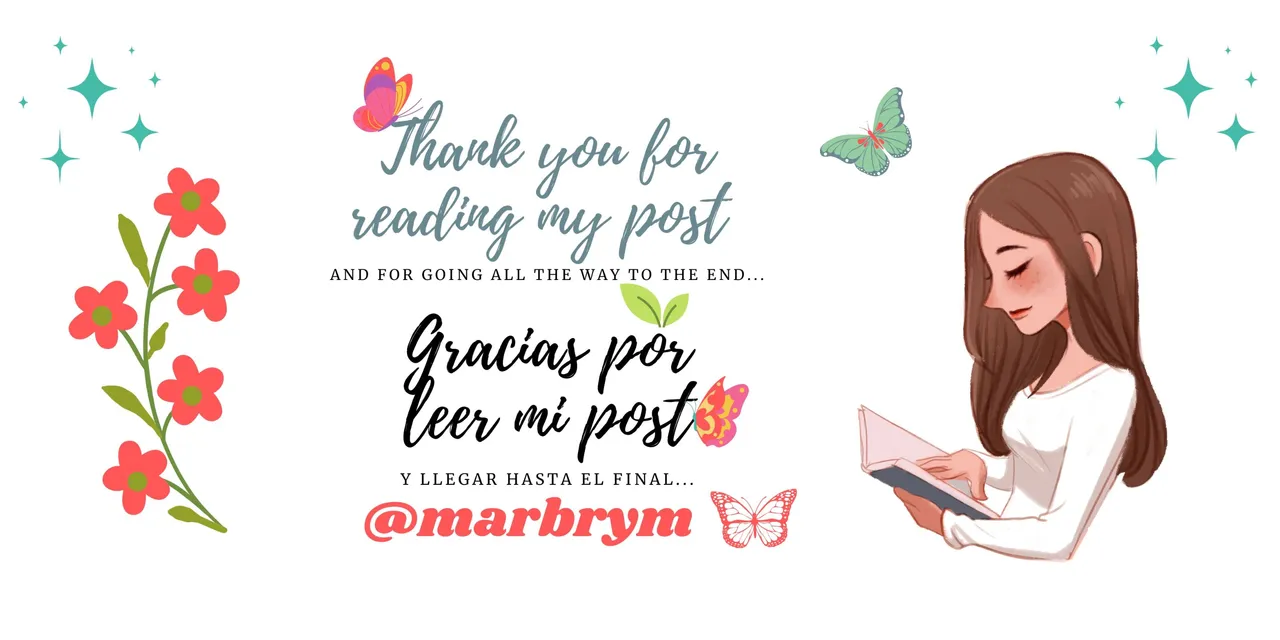
CREDITS | CREDITOS
Imágenes | Picture: Tomadas por mí a menos que se indique lo contrario (algunas editadas en Canva.com o en Microsoft Powerpoint) | Taken by me unless otherwise noted (some edited in Canva.com or Microsoft Powerpoint).
Nombre y Banner | Name and Banner: Diseñados por mí en Canva.com | Designed by me in Canva.com.
Separadores | Separators: @breili (www.tutorialesteemit.com)
Traductor | Translator: Traductor DeepL (versión gratuita) | DeepL Translator (free version)